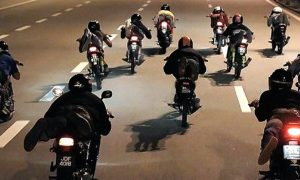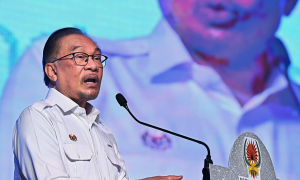Hari Raya Aidil Fitri
‘Hari Raya’ means “day of celebration,” and is a significant celebration for Muslims worldwide. Hari Raya Aidil Fitri signifies the end of the fasting month of Ramadan, and is determined by sighting the new moon on the day before the next month of the Muslim calendar (Syawal).
Ramadan is to remind Muslims of the plight of the poor, and to cleanse themselves through abstinence and self-control. During Ramadan, Muslims fast from dawn until sunset, and are forbidden from smoking and having sexual relations during daylight hours.
On the morning of Hari Raya Aidil Fitri, Muslims dress in new clothes and congregate in the mosques to perform prayers, and then visit cemeteries to pray for the departed souls of their loved ones. Returning home, oil lamps are lit to welcome the angels that visit on the seven days before the festival. Relatives and friends are welcomed to their ‘open house,’ and are served a wide variety of spicy dishes. Favourites include lontong, nasi padang, and beef rendang. Kids love Hari Raya Aidil Fitri, but not only for the food – they’re often given green packets of money when they go visiting
Though the actual celebration lasts an entire month, the festivities are usually concentrated in the first three days. If you’re invited to a Muslim home during Hari Raya Aidil Fitri, prepare yourself to eat!
Deepavali
Deepavali (or Diwali) means “a row of lights,” and is the Hindu festival of lights. Though several alleged origins exist, Deepavali is celebrated in Malaysia as the day the evil Narakasura was slain by Lord Krishna, when light triumphed over darkness. Hindus start the festival early, preparing Indian cookies like ommapadi, atharasum, and chippi. They also need to go shopping, as everything from clothes to bedspreads must be new and clean.
On Deepavali eve, ‘padayai’ (offerings) and prayers are made to ancestors, and then everyone busies themselves with cooking, hanging new curtains and placing new settees, and so on to welcome Laxmi, the goddess of prosperity.
Awake before sunrise, a Hindu family will apply oil on their heads, and then each member will take a ‘ganga-snanam’ (a ritual oil bath) to cleanse themselves of the past year’s impurities. Prayers are held at an altar, and then the family will gather to receive their elders’ blessings.
With prayers over, the ‘open house’ festival of food begins! As a courtesy to Muslim friends, many Hindu families offer halal foods, and everyone walks away filled with delicious Indian cookies and curries. Like their Muslim chums, Hindu kids love collecting their money packets!
Though oil lamps are lit elsewhere, most Malaysian Indians originate from Southern India, where the traditional lamp lighting occurs in a later festival (Karthigal Villaku).
Source: The Expat October 2005
Get your free subscription and free delivery of The Expat Magazine
This article has been edited for ExpatGoMalaysia.com
"ExpatGo welcomes and encourages comments, input, and divergent opinions. However, we kindly request that you use suitable language in your comments, and refrain from any sort of personal attack, hate speech, or disparaging rhetoric. Comments not in line with this are subject to removal from the site. "





















